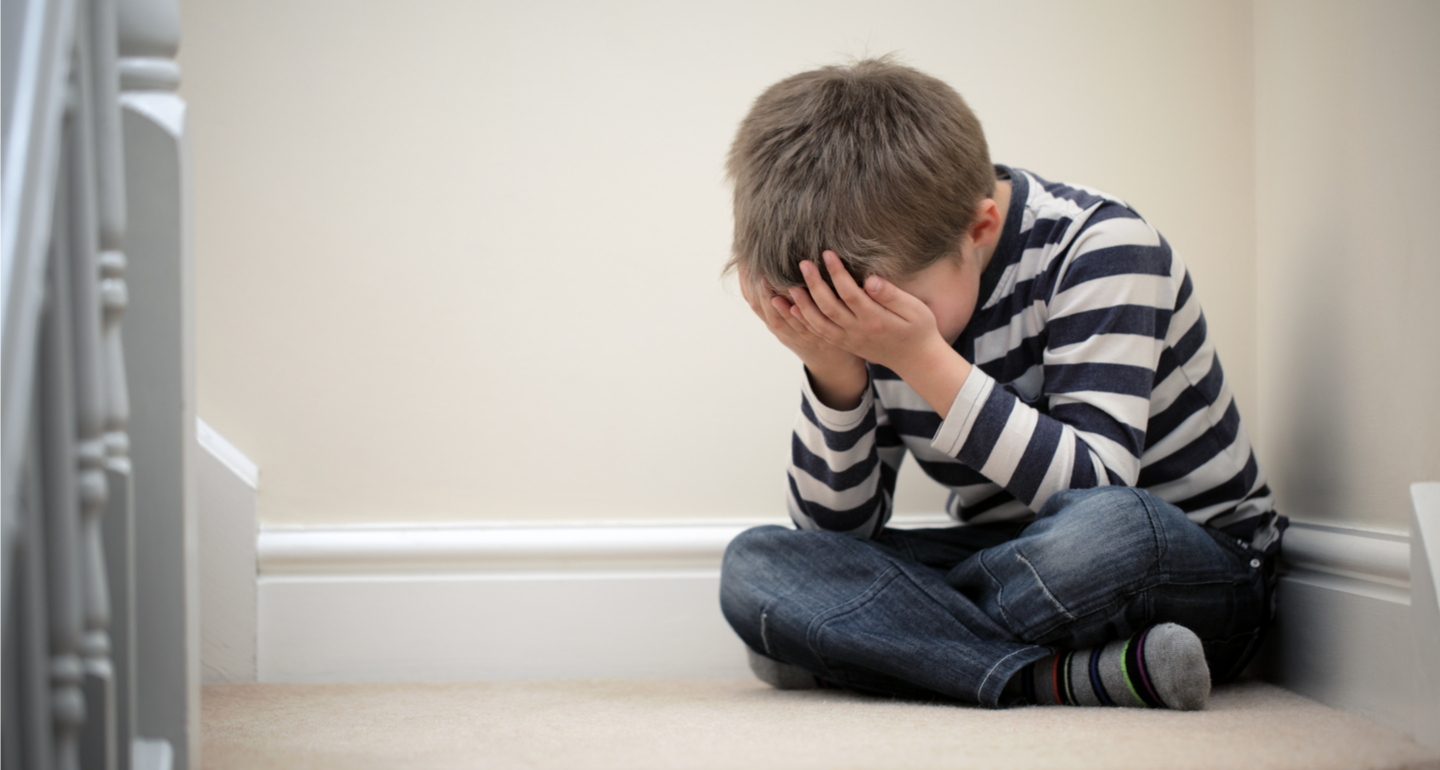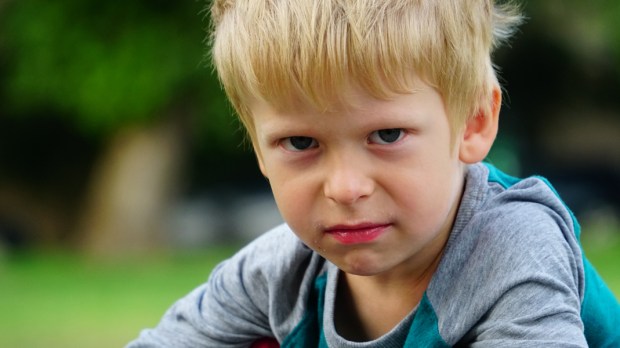The tantrums phase usually ends by the time kids reach school age, but some children still seem incapable of managing their emotions. They might get upset over little things, or they may have little empathy and patience with their siblings or relatives. What can you do with a kid who is always mad?
First, we have to be careful not to stick a label on them. Many parents may feel tempted to show their anger with humor, saying things like: “You’re always in a bad mood” or “You’re the grouch of the house.” These words can make the child think that it’s his nature, and that there’s no solution for him. Boxing the kid into a category or stereotyping him will just make it harder for him to leave that behavior behind.
Secondly, we have to avoid conditioning our love. We know that it’s hard to deal with ill-tempered kids sometimes, and it’s much more pleasant when they come to you and give you a hug. But when they go through a phase of being mad and upset at everything, we really need to keep showing our love and affection. It’s precisely at these moments when we have to make it clear that we love him and will ALWAYS love him, whatever his struggles and virtues. That unconditional love is the foundation on which we will be able to help him improve day by day.

In many cases, part of the problem is that these kids are highly sensitive to the looks, behaviors, or jokes of others, which they may take as a direct attack on themselves. This makes them react impulsively to others’ actions. To go to the root of the matter, we have to teach the child to get out of himself: the little sister isn’t crying to bother him, but because she doesn’t have any other way to communicate her needs; or perhaps Dad wasn’t able to bring him to his friend’s birthday party on time, not because he didn’t care if they arrived late, but because he had to take care of some things before leaving.
It’s important to help children depersonalize these episodes that shake them up, so that they will be able to put them in perspective and know that, even if something upsets or bothers them, it’s most often not a personal thing. Neither the universe nor their family (in most cases) is out to get them.
It’s important to teach them the difference between feelings, and actions based on what we feel. If as a child someone is sensitive and quick to interpret others’ behavior, he will probably have similar tendencies for the rest of his life. It’s important that he learns as soon as possible that even if he can’t control our emotions, he can control how he acts in the midst of those emotions.
It’s valid to feel annoyed when siblings tease, but to scream at them or treat them badly is something that can be controlled, and is a reaction that’s not justified. So we need to teach kids tactics that will help them get away from the situation and avoid an impulsive reaction to whatever bothers them. For instance:
- Count to 10; take time to let your gut reaction subside.
- Go to your room and breathe deeply
- Repeat some words that calm you down

It’s important for us to help them recognize their emotions and know how to control their impulses.
Empathy is a good tool to help a child understand others and get outside of himself. Learning to put himself in others’ shoes and think about how he would feel in a certain situation will allow him to take the focus off of himself and be more compassionate and understanding. We can help our children develop empathy in various ways, such as by helping them reflect on other people’s feelings, or by reading to them (or getting them to read, as age appropriate) good books.
Finally, we should also learn to give children their space. It’s understandable that we want our kids to be paragons of virtue who are always happy and kind. But the reality is that they, like us, also have their bad days and their character flaws. The good thing is that they have us to help them get to know themselves better and to improve. It’s important to respect their space and teach them that with some willpower, we can improve even the worst aspects of our character.

Read more:
4 Ways to develop empathy according to Edith Stein

Read more:
How to help gifted children deal with hyper-sensitivity

